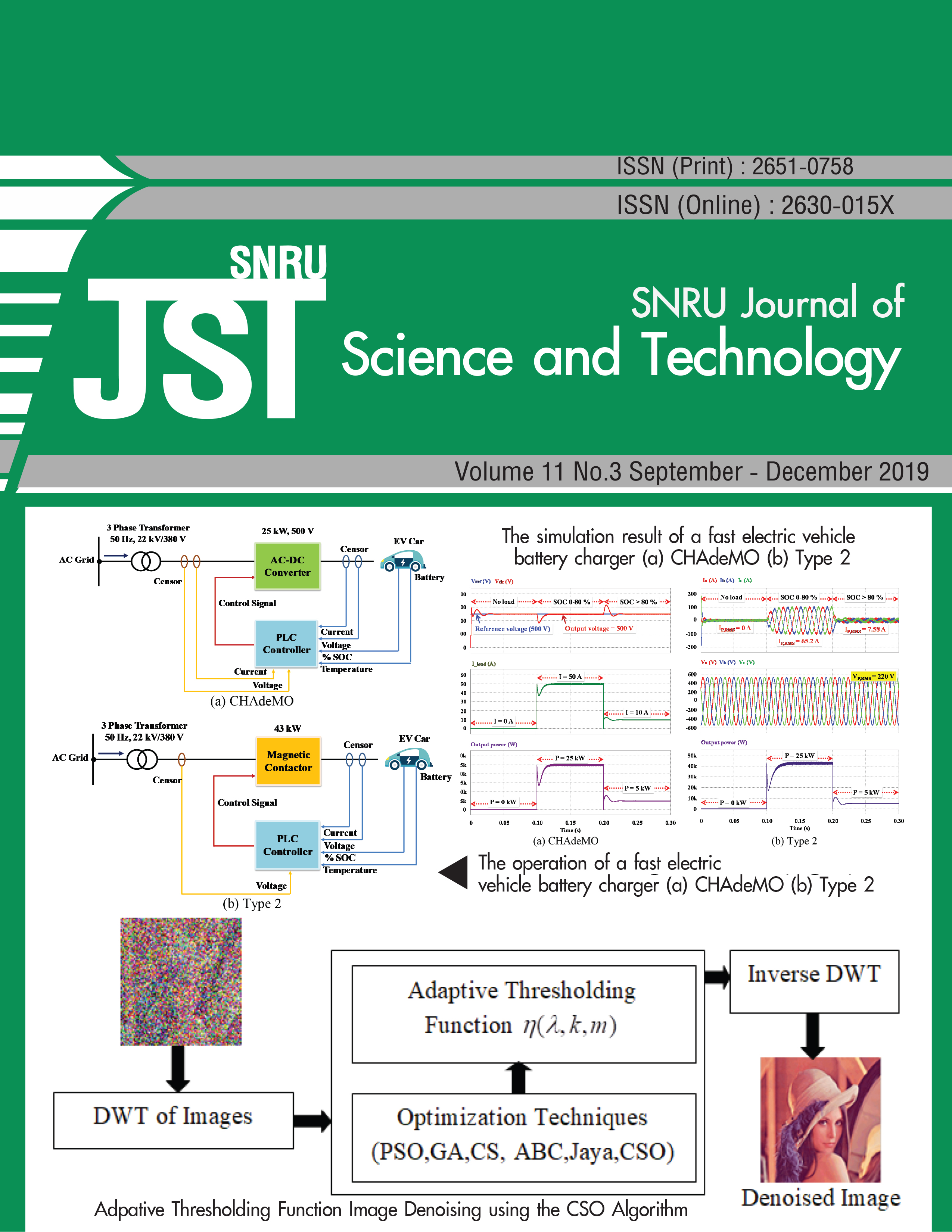Application of participatory design to development of organic farming game based on the philosophy of sufficiency economy
Keywords:
Organic Farming, Philosophy of Sufficiency Economy, Life Simulation Game, Participatory Design*PDAbstract
This study aimed to: 1) explore the Philosophy of Sufficiency Economy and theparticipatory designfor developing theorganic farming lifesimulation game; 2) develop the organic farming life simulation game based on the Philosophy of Sufficiency Economy; and 3) evaluate the functional quality of the prototype simulation game. In this study, the researcher focused on the literature review onthe related documents and supportive theories throughthe theoretical framework ofHuman-Centre Design (HCD)that primarily emphasizesthe stakeholder’s benefits. The researcher also gave deeperattention onthe procedure and background context ofthesupportive theories in order toconstruct the research conceptual frameworkand another theory applied in this study wasthe Participatory Design (PD). The document data wasdeducted from the literature review and the field data for the game content was derivedfrom the expert and the sample groupincluding: 1) the organic farmers; 2) the agriculturists; and 3) the agricultural administrativeand the sample group from Khon Kaen Vocational College divided into 28 vocational certificate students and 32 high vocational certificate students.In term of the user’s need for the gamedesign, the data wasanalyzed and interpreted to definethe final result for thedesiredcontent and other feature designs for the organic farming game following the Philosophy of Sufficiency Economy and this final result was used to create the game through theGame Design Document Outline (GDD). Then, the data set derived from the final result was used to design the game to beevaluated with the 5-point rating scale evaluation by 5 media experts and 100 students from Khon Kaen Vocational College. Theoutcome indicated that the quality of the game was good (ݔ̅= 3.93, S.D. = 0.45)and when comparing with the standard mean initially defined at3.51,itwas higher so thatthe game wasensuredto be applicable for practical use.
References
[2] Office of the National Economic and Social Development Council (2015). Direction of the 12th National Economic and Social Plan, Bangkok.
[3] Amorntham, U. (2016). The Philosophy of Sufficiency Economy of King Rama IX: p 29.
[4] Tancho, A. (2007). “The Applied Natural Farming”. Retrieved on May 4th, 2017 from http: //www.maejonaturalfarming.org/. (Online).
[5] Penchom, C (2017). “Organic Farming”: Path of the Word Future. Retrieved on May 4th, 2017, from https://www.tcdc.or.th/articles/others/14873/เกษตรอินทรีย์-วิถีแห่งโลกอนาคต. (Online)
[6] Office of Agricultural Economics. (2013). The OAE Organic Farming Movement: 4th Strategy – Becoming International Hub”. Retrieved on May 4th, 2017 from https://www.oae.go.th/ewt_news. News. (Online).
[7] Paje, S. (2016). "STEM Education Toward Modern Learning”. Retrieved on May 4th, 2017 from https://www.eduweb-stou1.com/. (Online).
[8] Sofia Hussain, Elizabeth B.-N. Sanders, Martin Steinert. (2012). “Participatory Design with Marginalized People in Developing Countries: Challenges and Opportunities Experienced in a Field Study in Cambodia” Retrieved October 04, 2017 from https://www.ijdesign.org/index.php/IJDesign/article/view/1054. (Online).
[9] Ministry of Agriculture and Cooperatives. (2015). “Ministry of Agriculture and Cooperatives Pusing Forward the National Organic Farming Strategy to Promote and Develop Positive Image of Thai Organic Products and Services in Domestic and International Contexts”. Retrieved on May 4th, 2017 from https://www.moac.go.th/ewt_news.php?nid=14666. (Online).
[10] Srigiofun, Y. & et.al. (2012). “Promoting Organic Agriculture and Integrated Pest Management of San-sai Farmers, Chiang Mai Province” Retrieved October 5th, 2017 from https://librae.mju.ac.th/goverment/.(Online).
[11] Boonyoung, K. Liemsuwan, T. & Tavarom, A.(2009) “Sufficiency Economy Philosophy in Sub-district Administration Organization”. Retrieved October 5th, 2017 from https://www.senate.go.th/web-senate/research50/
pdf/series1/f01.pdf /.(Online).
[12] Suwannakit, C. & Prempree, K. (2016). “The Comparison of Costs and Returns between Organic Rice Farming and Chemical Rice Farming” Retrieved October 5th, 2017 from https://www.tci-thaijo.org/index.php/Veridian-E-Journal/article/viewFile/66930/54660. (Online).









